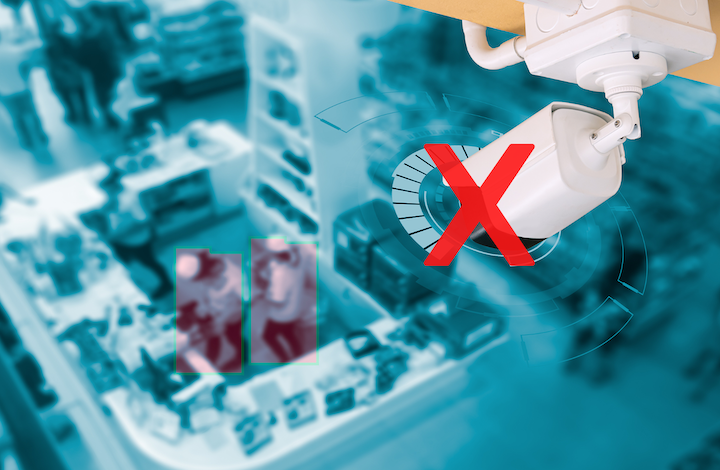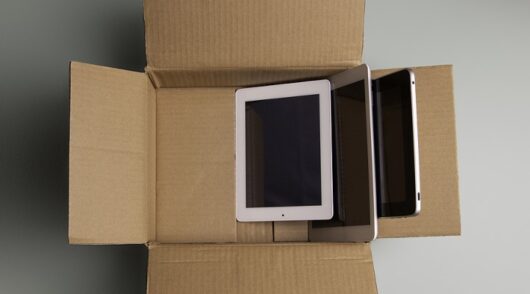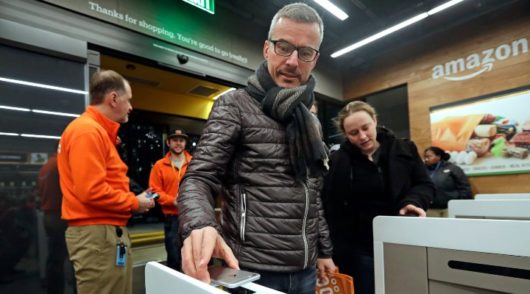Research shows Australian consumers are scared about the safety of their personal information – and their images – more than ever before.
What retailers do with their data is at the top of shoppers’ minds, especially after several major Australian chains were recently caught taking photos of customers without most of them being aware.
Yet, for retailers – whether with physical stores or trading online – data is king when developing meaningful engagements with customers, optimising sales and monitoring store performance.
So how can retail businesses collect useful information (data) yet reassure their customers their privacy is respected and protected when they visit stores?
Why it is critical to adopt non-intrusive monitoring
David Mah, MD and co-founder at Kepler Analytics, says it is critical that retailers adopt non-intrusive means of collecting data on customers – and that businesses make sure they communicate to consumers how safe and private their information is.
“The use of CCTV and camera counting traffic systems is viewed with increasing suspicion by consumers these days – sometimes fairly – but nevertheless the publicity can be harmful to any retail brand.”
Kepler Analytics has solved the privacy fears of retailers and consumers alike by using a new technology that can monitor customer behaviour – and store interaction – without identifying them.
Kepler uses radio energy-based technology which measures the radio frequency density output from smartphones without being able to identify the phone or its owner.
“This makes Kepler’s technology intrinsically private, in that it does not infringe on – and is not even applicable – when it comes to the compliance frameworks such as Australian Privacy and Surveillance Laws, and Europe’s GDPR, for example.”
Radio frequency is much safer and more discrete than cameras, Wi-Fi, and Bluetooth technologies that most other technology companies in the retail store analytics space rely on.

“With Kepler, retailers can get the data they need to operate stores effectively without having to compromise on shopper privacy or take on privacy-related risks,” says Mah.
In fact, stores with the technology installed do not even need to display signage warning customers they are using it.
“Privacy laws do not apply.”
Mah says Kepler Analytics drives data-driven store actions to boost sales and traffic. Actionable insights are generated via its software, analysing customer traffic and behaviour captured by its sensors.
The technology works across two levels: measuring and analysing consumer behaviour in stores and monitoring store performance.
Powerful insights from real-time monitoring
Privacy isn’t the only advantage of the Kepler sensor technology. The setup is incredibly simple with a one-step installation process that does not interrupt store operations.
“Our analytics software provides powerful insight and real-time alerts for immediate action across the store network,” explains Mah.
Retailers are provided with actionable insights including:
- Linking real-time key performance indicators (KPIs) to store behaviours, actions and staff coaching. KPIs include customer behaviour measures like the conversion rate of passersby into store traffic and sales conversion, fitting room conversion and dwell time.
- Service level optimisation based on customer dwell time and the maximisation of conversion rates.
- Optimisation and prediction of marketing, promotional and merchandising decisions.
- Store design to encourage intended store experiences and customer journeys.
- Negotiating rent across the store network using passers-by traffic data and centre/precinct benchmarks.
- Forecasting traffic and sales at potential new store sites to reduce the risk of network expansion.
While the major Australian retailers who were caught filming customers and storing their images this year have since paused their use of the scanning technology, the high-profile media coverage of the practice sparked outrage, doing little to appease concerns among consumers about who is filming them and who has access to it.
Research from Toluna late last year – long before the image scandal broke – showed 85 per cent of Australians were concerned that companies are acquiring too much data about them. Three in four said their greatest concern was the possibility of the data being hacked leading to their personal information being stolen, and 58 per cent feared companies collecting data would share it with or sell it to other companies.
So now is the time for all retailers to analyse what data they collect, how they store it and who can access it.
Kepler Analytics’ technology has now been embraced by retailers across more than 35 countries allowing them to increase sales and customer satisfaction and decrease operating costs, all at once.
For more information about Kepler Analytics, click here.






